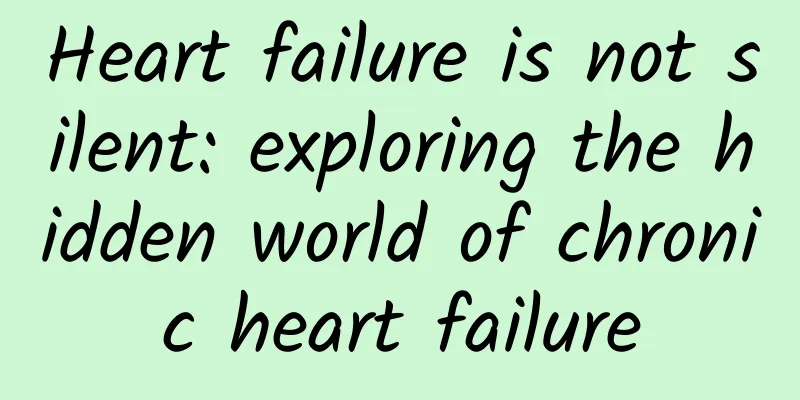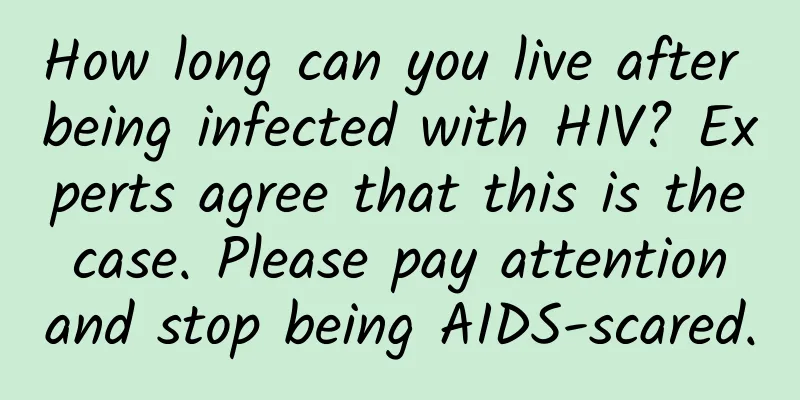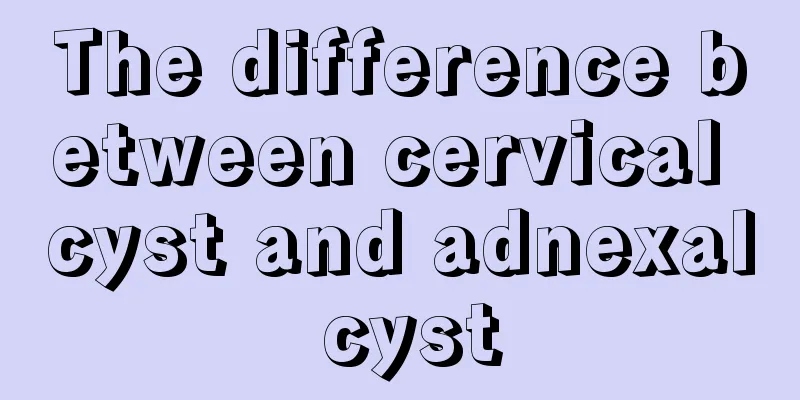Heart failure is not silent: exploring the hidden world of chronic heart failure

|
Author: Sun Xinglan, deputy chief nurse of the Second Affiliated Hospital of Nanchang University Xu Yanjuan The Second Affiliated Hospital of Nanchang University Song Yujie The Second Affiliated Hospital of Nanchang University Reviewer: Qi Hongmei, Chief Nurse, First Affiliated Hospital of Nanchang University On the stage of life, the heart is like a tireless dancer, carrying the weight and hope of life with every beat. However, when the dancer's steps slow down, or even stumble occasionally, a disease called "chronic heart failure" (commonly known as chronic heart failure) quietly appears and becomes an invisible killer threatening health. This article will unveil the mystery of chronic heart failure, take you into this complex and secretive medical field, and understand its causes, manifestations, diagnosis, treatment and care. 1. Chronic heart failure: a hidden worry in life Chronic heart failure is a pathological state in which heart function gradually declines and cannot meet the body's daily metabolic needs. It is a serious manifestation or late stage of all heart diseases. It does not happen overnight, but is the result of the long-term accumulation of multiple heart diseases, such as coronary heart disease, hypertension, cardiomyopathy, etc. These diseases will gradually make the heart lose its vitality. In the early stages of heart failure, the symptoms are often mild, or even without obvious discomfort, but as time goes by, its harm gradually becomes apparent, like boiling a frog in warm water, causing people to fall into a health crisis without knowing it. Figure 1 Copyright image, no permission to reprint 2. Causes of chronic heart failure: multiple factors intertwined The causes of chronic heart failure are complex and diverse, mainly including myocardial damage, cardiac overload, arrhythmia, etc. The interaction of these factors leads to changes in the structure and function of the heart, which eventually causes heart failure. It is worth noting that many patients with heart failure have a long history of heart disease or bad lifestyle habits before the onset of the disease, such as poor control of blood pressure, blood sugar, and blood lipids, long-term smoking and drinking, and lack of exercise, which are all potential risk factors for heart failure. 3. Symptoms appear: warnings that cannot be ignored As heart failure progresses, patients will experience a series of obvious symptoms, such as dyspnea, fatigue, edema, etc. These symptoms not only affect the patient's daily quality of life, but may also indicate the deterioration of the disease. Therefore, once these symptoms occur, you should seek medical attention in time and receive professional examinations and treatment. Figure 2 Copyright image, no permission to reprint 4. Precision medicine: formulation of personalized treatment plans Developing personalized treatment plans based on individual differences in patients with chronic heart failure is the cornerstone of comprehensive care. This includes comprehensive consideration of drug therapy, non-drug therapy (such as cardiac resynchronization therapy, implantable cardiac defibrillator, etc.), and traditional Chinese medicine conditioning, etc., based on the patient's etiology, severity of the disease, comorbidities and other factors. Through precision medicine, we strive to achieve the best treatment effect. 5. Lifestyle intervention: starting with the details Lifestyle intervention is an integral part of the management of patients with chronic heart failure. 1. Adjust your diet to a low-salt, low-fat diet, avoid overeating, and avoid consuming large amounts of fluid to reduce the burden on your heart. 2. Exercise moderately: Develop a suitable exercise plan based on the patient's physical condition, such as walking, Tai Chi, etc., to enhance cardiopulmonary function. 3. Quit smoking and limit alcohol consumption. Tobacco and alcohol are harmful to the heart. It is recommended to quit smoking (including e-cigarettes), quit drinking or avoid heavy drinking, especially for patients with alcoholic cardiomyopathy. 4. Psychological adjustment: Maintain a positive and optimistic attitude, provide psychological support and psychological counseling, and help patients relieve negative emotions such as anxiety and depression. 6. Monitoring and follow-up: protecting every moment of health Establish health records, regularly monitor vital signs, cardiac function indicators, etc., to timely understand changes in the condition and adjust treatment plans. At the same time, strengthen self-management training, such as correctly measuring blood pressure and pulse rate, so that patients can also pay attention to their health in daily life. In addition, regular follow-up examinations are also an important part of ensuring the effectiveness of treatment. 7. Family and community support: building a comprehensive caring network The rehabilitation of patients with chronic heart failure cannot be separated from the support of family and society. Family members should actively participate in the patient's care process, provide emotional support and daily care. At the same time, community medical institutions should also strengthen their attention and guidance to patients with chronic heart failure, and provide convenient medical services and health education resources. By building a comprehensive caring network, a warm, harmonious and hopeful rehabilitation environment can be created for patients. Figure 3 Copyright image, no permission to reprint Although chronic heart failure is secretive and complex, as long as we are vigilant, scientifically prevent and treat, and provide all-round care, we can effectively reduce its harm. Let us work together to protect heart health and keep the tree of life evergreen. Remember, heart failure is not silent, and our care and actions are the loudest response to it. |
<<: How much running should be maintained per week to stay healthy?
>>: Why does the doctor ask you to check your blood homocysteine?
Recommend
Reasons for delayed menstruation
Every woman has her period once a month. Menstrua...
Why do I need to fast for the 37-week prenatal checkup?
The fetus at 36 weeks of pregnancy is already ful...
How much do you know about the role of isolation cream?
In daily life, most women will use isolation crea...
Causes of brown discharge after period
Menstruation can be said to be a stage that many ...
Pictures of cervical polyps
The original layer of the endometrium of the cerv...
How to quickly enlarge breasts during menstruation
Many female friends hope to have a plump breast. ...
What to do if a woman's lower abdomen hurts when pressed
Many women have reported that they feel pain when...
Night heat in late pregnancy
In many areas, the term fetal toxin is popular, a...
Is it really okay for women to wear bras when sleeping?
Many women like to wear bras when they go to bed ...
My period came back after more than ten days
Girls' menstruation is an existence that is h...
The harm of poor sleep for women
Poor sleep has become a common problem in today&#...
Is it dangerous to have the umbilical cord around the neck during normal delivery? What should I pay attention to when the fetus has the umbilical cord around the neck?
Many mothers will find that their babies have the...
Can abortion be detected in one go?
In our lives, there are many women who have no co...
Can pregnant women eat duck blood?
Can you eat pig blood in early pregnancy? Pig blo...
Milky white discharge from nipples
I think everyone knows how important breasts are ...









